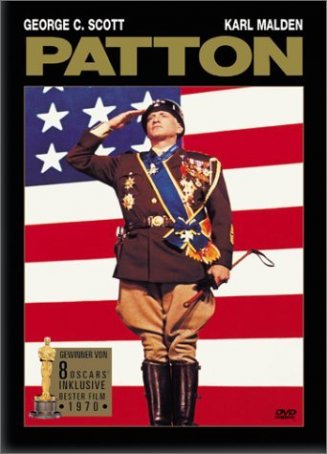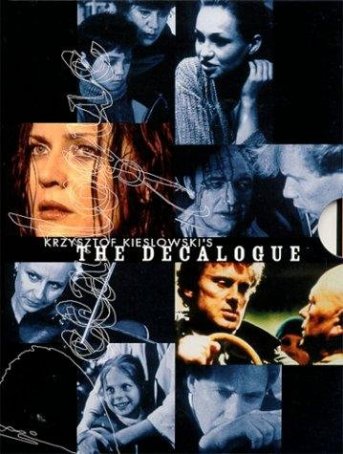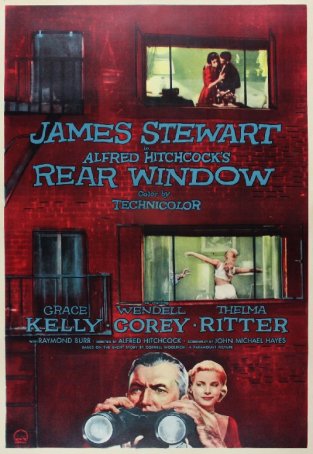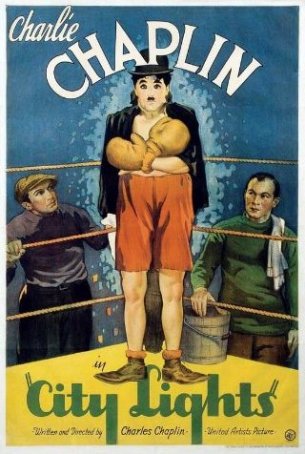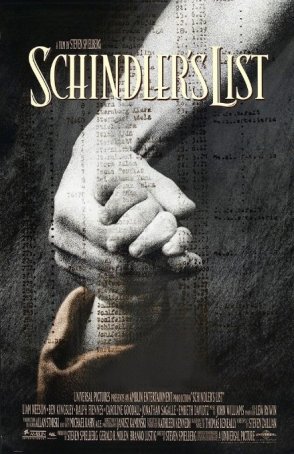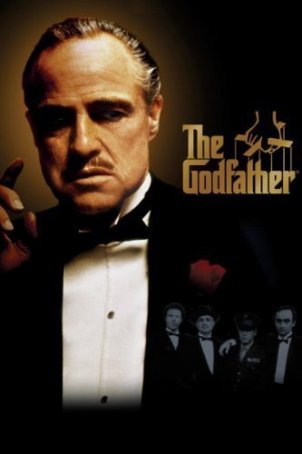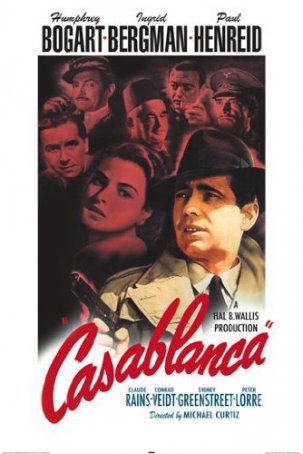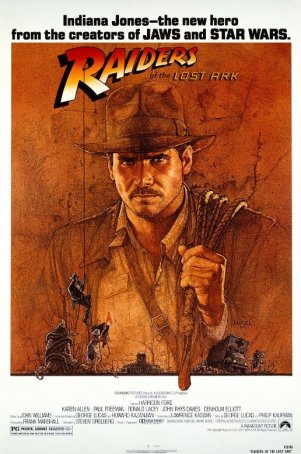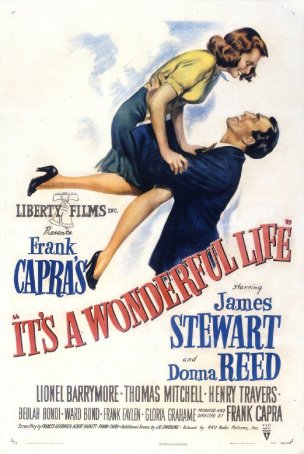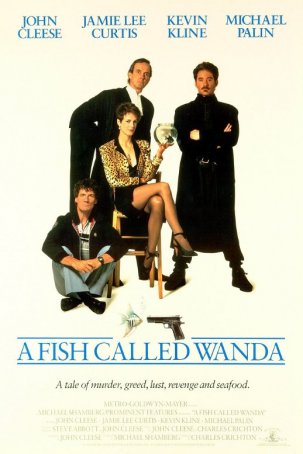James Berardinelli's All-Time Top 100
It has now been close to 13 years since I embarked upon what I called at the time my greatest challenge as a film reviewer: whittling down the nearly 6000 films I had seen (at the time) to the top 2%. I have no idea if I got it "right" or not, but the Top 100 that resulted from that effort remains one of my most notable personal accomplishments. Lists in general are meant to spur discussion and this one is no different. My sincerest hope, however, is that it will provide fodder for those in search of good movies to watch at home. Some are available on streaming services. I believe all (or at least nearly all) are available on Blu-Ray or "old-fashioned" DVD.
I started compiling the list in late 2001 (shortly after I returned from the 2001 Toronto Film Festival, the "9/11" festival) and had the order mostly completed by Christmas Eve. I began posting it, one title per week, in early January and completed it in late 2003. Here are some excerpts from the original introduction:
People love lists… Like everyone else, I have a soft spot for [them]. Perhaps because I'm an engineer by trade, I like organizing things, and lists are effective ways of doing that. Still, I don't pay much attention to any of the so-called "All Time" film rosters - whenever a prominent one pops up, curiosity prods me to check it out, but it doesn't mean much to me. I don't get upset if my favorite films aren't there - in fact, in many cases, I expect them to be absent. There's nothing more individual and personal than a Top 100 list. Attempts to quantify the Best 100 movies of all time are doomed to failure, since the words "quantify" and "art" are incompatible bedfellows.
So why am I making my Top 100 list available for the world to see? One reason is that, amidst all of the e-mails I get, this is one of the most frequent requests… Another reason is to highlight some underrated films by their inclusion (and, conversely, to do the same with some overrated films by their omission)…
Please note that the title of the list is my "Top 100 Films of All-Time" not the "Best 100 Films of All-Time". My ego is not large enough to allow me to claim to be able to compile the latter list. To date, I estimate I have seen about 6000 movies. That's a lot - more than many people see in a lifetime - but it also means that there are thousands of films I have not seen, and, with so many holes in my viewing roster, I can't even attempt to compile a comprehensive list…
Also, the list is a living thing. As I see more movies, it will evolve and change. When a great new film comes out, it may enter the list. Likewise, I may see and fall in love with an older movie. Thus, to start with, there are no runners-up. But, as other movies enter the list, those near the bottom will slip into runners-up status…
Some might assume that the list will be comprised solely of four star films. It is not. There are many four-star films to be found, but also quite a few with three-and-one-half stars. There are also a number of four-star films that didn't make the list. There's no definitive reason for this, except that the passage of time has, in some cases, enhanced or decreased my opinion of a particular movie…
So I have now reached a point when the "living list" needs to be revisited. Since I last revised the Top 100 a few years ago (adding Apted's Up Series and The Dark Knight), there have been some very good movies but, until last year, nothing that challenged me to change the list. 2013, however, brought two great films to my attention (one of which was released domestically in 2014) that warrant inclusion. They are: Before Midnight and Like Father, Like Son. The former is the third installment in Richard Linklater's Before series (it's currently a trilogy but that will likely change in another 8 years). It enters the list at #68, only a few slots behindBefore Sunrise. (Before Sunset didn't make the Top 100, although it would have made a hypothetical Top 200.) The latter is a Japanese film and features neither Dudley Moore nor Kirk Cameron. A masterful and emotionally potent exploration of identity and fatherhood from acclaimed director Hirokazu Kore-eda, this one is truly worth searching out. (As I write this, it is available for streaming.) It enters at #83.
The addition of two titles means that Vertigo and Dead Again slip into the growing pond of "Honorable Mentions." Technically, that means that the Top 100 is now the Top 109.
As of September 2014, here's the list as it stands, with links to the reviews:
U.S. Release Date: 1970-04-02
MPAA Rating: "PG" (Violence, Profanity)
Genre: DRAMA/WAR
Director: Franklin J. Schaffner
Cast: George C. Scott, Karl Malden, Michael Bates, ...
Patton is an atypical choice, to be sure, but this film has never been just another movie to me. It's my so-called "desert island" film – in other words, if I was going to be stranded on a desert island with only one movie, it would be Patton. My selection of this film won't come as a surprise to many of my most faithful readers. In at least two places on the site, I have identified this as my favorite movie, so, to a degree, its unveiling could be seen as anticlimactic. Patton became my favorite film some time during the late 1980s, about ten years after I saw it for the first time (in the same school class that introduced me to 2001, The Great Escape, and Dr. Strangelove). The first time I saw it, I thought it was great. By the third viewing, I believed it to be unsurpassed, and quantified it as my #1 movie, moving past my previous choice, The Empire Strikes Back. Why am I such a huge fan of Patton? Part of it has to do with the acting – I think George C. Scott's portrayal of the general is the best male acting performance of all-time, bar none. Part of it has to do with the writing and direction – this is one of the most well-constructed and engrossing motion pictures I have ever seen. Part of it has to do with the film's historical accuracy, which is renowned. (There are a few cheats and omissions, but not many.) But the biggest part is something I can't express. Over the years, it has struck, and continues to strike, the perfect responsive chord within me. The more I have studied Patton (the man), the more I have come to appreciate the film. There's also a little bizarre lore surrounding the movie's place in recent history. Apocryphal or not, rumor has it that viewing this movie caused Richard Nixon, in a surge of patriotic ecstasy, to order the bombing of Cambodia. For those who are reading this but have never seen Patton, I urge you in the strongest possible terms to seek it out. It's in color and in English, so those with a dislike of black-and-white and/or subtitles need not avoid it. And, although it is about a great warrior, it's more a character study than a war film, which makes it more accessible to women. (Every female I have shown it to has appreciated it.) Do I think Patton is the greatest film ever made? Probably not. But, for me, it stands at the pinnacle of cinematic achievement. And, although I expect the composition of the Top 100 list to gradually shift over the years, it's unlikely that Patton will ever slip from this position.
U.S. Release Date: 1989-12-10
MPAA Rating: "NR" (Violence, Profanity, Sexual Situations)
Genre: DRAMA
Director: Krzysztof Kieslowski
Cast: Janusz Gajos, Anna Polony, Olaf Lubaszenko, ...
For many years, Decalogue was considered to be the "lost" film of Krzysztof Kieslowski. Unseen for the most part outside of Europe, its North American distribution was blocked by the owner of the U.S. and Canadian rights, who refused to sell them. After the success of the Three Colors trilogy, Miramax tried unsuccessfully to buy those rights. In 1995, the logjam was broken, at least in a way. A British copy of Decalogue made its way around the North American film festival circuit, allowing viewers with an interest to see the ten-part masterpiece. The marketplace has changed since then, and the entire production is currently available on DVD (as a three-disc "special edition"). Some might argue that Decalogue isn't really a movie at all, and (at least technically) they would be correct. The series was originally produced and shown on Polish TV in ten one-hour segments. However, its distribution outside of Poland has been predominantly theatrical, and, since I initially experienced it in a theater (in five two-hour parts), I consider it to be a movie. When I first saw Decalogue (in May 1995 at the Philadelphia Festival of World Cinema – one of the first U.S. venues to show the series), my expectations were extremely high. Decalogue exceeded them all. Leaving the theater at the end of Part 10, I considered it to be one of the best movies I had ever seen. My opinion has not changed. Even the weakest part of Decalogue is superior to about 95% of what is shown on movie screens today. The two most powerful segments - #5 & #6 – were extended for theatrical release (as A Short Film About Killing and A Short Film About Love), and these are as compelling as one might expect. The way in which Decalogue is broken into ten pieces makes it an easily digestible viewing project, since the experience can be spread out over a number of nights. It's hard to stress how strongly I recommend this film, even for the subtitle-phobic. If any movie has the power to change a life and provoke deep introspective thinking, this is it. It's powerful, masterful, and unforgettable.
U.S. Release Date: -
MPAA Rating: "PG" (Violence)
Genre: THRILLER
Director: Alfred Hitchcock
Cast: James Stewart, Grace Kelley, Wendell Corey, ...
My belief that Grace Kelly is one of the most beguiling women ever to appear in a Hollywood film is a secondary reason why Rear Window has placed so highly on my Top 100 list. My belief that this is the greatest film of arguably the greatest director of all-time is the primary one. There is certainly no consensus as to what Hitchcock's most accomplished film is. Some argue for Vertigo, others for North By Northwest, others for Rear Window, others for Psycho, and so on... For me, it has always been Rear Window. Part of it is the premise, part is the acting, but the biggest part is the execution. By keeping his camera locked in Jeffries' apartment, Hitchcock makes the movie explicitly voyeuristic, placing us in the protagonist's shoes and imbuing us with his impotence. This elevates the tension to almost unbearable levels. We need to act, but cannot, and, unlike in most thrillers, the hero is unable to act in our stead. I have seen the movie a dozen or so times, and I still get a chill when Raymond Burr enters the apartment while Grace Kelly is snooping. Rear Window is the movie that elevated me from an admirer of Hitchcock to an unabashed fan. It led to my going back and seeing a lot that I might not otherwise have seen, including some of his more obscure films. As for the Christopher Reeve remake, I have only two words: ignore it. Unless, that is, you are curious to see how the same basic story can be turned into one of the greatest thrillers ever made and an insulting piece of B-level trash. For much of the '80s and '90s, Rear Window was only available in a badly washed-out VHS or laserdisc copy which did Hitchcock's original color compositions no credit. Fortunately, a glorious restoration was completed in 1999. After a limited theatrical run, it was transferred to DVD. For anyone who wants to watch or re-watch Rear Window, that is unquestionably the version to get.
U.S. Release Date: -
MPAA Rating: "NR" (Nothing Objectionable)
Genre: DRAMA/COMEDY
Director: Charles Chaplin
Cast: Charlie Chaplin, Virginia Cherrill, Harry Myers, ...
I will freely and openly admit that I am poorly versed when it comes to silent films. Over the course of my life, I have seen less than 100 of them (probably closer to 50). To me, many seem more like curiosities and windows into the past than complete motion pictures. My favorite from the silent era – and, indeed, one of my all-time favorites - is Chaplin's finest motion picture, City Lights. It is the only silent film ever to elicit a tear from me, and it stands up well against the best of the talkies. City Lights is an emotionally powerful drama about love and self-sacrifice that includes some of the best humor ever committed to the silent screen by Chaplin or Buster Keaton. I first discovered City Lights on VHS when I was previewing a variety of silent films for an article on movies of the '20s and early '30s. (It was never written, but I got paid nonetheless.) Most of the films seemed to be rather run-of-the-mill curiosities, but City Lights stood out forcefully. It's easy to understand why critics used to regularly vote this as the best film of all time (until Citizen Kane stole away the honor). It's a great motion picture. It is a shame that the stigma of it being a silent film has constricted its audience in recent years. It's widely available, but, sadly, not widely seen. Roger Ebert writes that one of his most treasured movie experiences occurred in 1972, when he saw City Lights projected outdoors in Piazza San Marco in Venice. After its completion, Chaplin appeared on a balcony and waved to the crowd. Could there be a more magical moment? Had I been there (not realistic considering my age), it would surely have been a defining moment in my life.
U.S. Release Date: 1993-12-15
MPAA Rating: "R" (Violence, Sexual Situations, Violence)
Genre: DRAMA
Director: Steven Spielberg
Cast: Ralph Fiennes, Liam Neeson, Embeth Davidtz, ...
Has any movie ever made more effectively presented the two halves of human nature? In Schindler's List, we have the monstrous and demonic (Goeth) personified alongside the selfless and sacrificing (Schindler). Yet this is no mere allegory; with the exception of certain events that have been fictionalized to make for a better narrative, Schindler's List is a true story, a part of the historical record. A few years ago, I named this my #1 movie of the 1990s, and my opinion has not changed since then. Few films I have seen have affected me as deeply or stayed with me as long. I can still recall the stunned silence in the theater as the end credits rolled. Four hundred people were sitting there; no one got up to leave until the lights came on. There was no talking as we lined up and filed out. Never before or since have I had that experience attending a motion picture. Schindler's List was the movie that documented for all to see that Steven Spielberg was capable not only of making tremendously entertaining popcorn films, but that he could cross over and craft something of amazing substance. Since then, he has done Amistad and Saving Private Ryan, but Schindler's List remains his crown jewel. He will likely never top it, nor will he likely feel compelled to try. The film has its detractors, few though they are. For the most part, their gripes sound like sour grapes – the comments of those who, for whatever reason, dislike the director. Over the course of the last decade, I have watched Schindler's List only three times – far fewer than almost any other film in my Top 100. It's a tough movie to view and my mood has to be just right. On each occasion, the experience has lingered, not only for hours, but for days. Inexplicably, the movie has not yet been released on DVD. Although that situation will be rectified in early 2004, it strikes me as incomprehensible that a film of this magnitude and importance has not yet found itself into such a universally embraced video medium.
U.S. Release Date: 1972-03-24
MPAA Rating: "R" (Violence, Profanity, Sexual Situations, Nudity)
Genre: DRAMA
Director: Francis Ford Coppola
Cast: Robert Duvall, Al Pacino, Marlon Brando, ...
When it comes to Francis Ford Coppola and Mario Puzo's three-film collaboration for "The Godfather" saga, there are two camps: those who believe the first film is superior and those who favor the second film. (I suppose, at least in theory, there is a third group – those who rank The Godfather III at the top. But since I have never met anyone in that category, nor do I ever expect to, I'll leave that out.) I belong to the former, arguing that The Godfather is better written, more tightly scripted, and offers more emotional resonance than its sequel. Both are great films, to be sure, and the experience isn't complete without watching the pair, but, taken as independent pieces of cinema, I prefer the first. In some sense, The Godfather can be viewed as the ultimate "guy" movie, so it is perhaps surprising how many women count this among their cinematic favorites. The reason has to do with craftsmanship. From top to bottom, The Godfather ranks as one of the United States' most accomplished motion pictures. It's not just guns, mobsters, and quotable lines. It's an American tragedy. Had Shakespeare been alive today, this is the kind of story he would have written. Some might state that this an "obvious" choice for anyone's Top 10, and I would agree with them. The appearance of this film on so many "best of" lists is evidence not only of the quality of the production but of its widespread appeal. Although the purpose of this list isn't to quantify the greatest films, I have no compunction about saying that not only is The Godfather one of my favorites, but it is among the best motion pictures ever made.
U.S. Release Date: -
MPAA Rating: "NR" (Violence)
Genre: THRILLER/DRAMA
Director: Michael Curtiz
Cast: Claude Rains, Ingrid Bergman, Paul Henreid, ...
It may come as a surprise to some readers that I was 25 years old when I first saw Casablanca. That was after I had started reviewing movies, when the film enjoyed a limited re-release in 1992 for its 50th anniversary. At the time, I wrote the following in an unpublished review: "Many of the classic films of the 30s and 40s, when examined by today's movie-making standards, don't hold up well. Casablanca bucks the trend, proving that it's a classic. It is every bit as entertaining on the big screen today as it must have been 50 years ago when it was first released." A little naïve, perhaps, but true nonetheless. I initially gave the film ***1/2, but revised that to **** a few years later, after I had been given the opportunity to watch the movie several more times on laserdisc. Like countless others, I loved Casablanca the first time I saw it, but subsequent viewings deepened my appreciation, and it soared in my estimation. It truly is one of the greatest, most timeless American movie classics to have come before Hollywood's cameras. This is one instance when I am in step with just about every other critic and movie-lover who has ever made a Top 100 list. Casablanca is not only on most of them, but many have it ranked as high as (or higher than) I do.
U.S. Release Date: 1981-06-12
MPAA Rating: "PG" (Violence)
Genre: ACTION/ADVENTURE
Director: Steven Spielberg
Cast: Harrison Ford, John Rhys-Davies, Karen Allen, ...
Although Raiders of the Lost Ark is an unconventional choice for a Top 10 film, I'm not going that far out on a limb. Most film-lovers would probably agree that Raiders is among the best action films of the past 25 years. It is arguably Steven Spielberg's best non-serious motion picture, and the most impressive title on George Lucas' resume. (Star Wars is more important from a pop culture standpoint, but Raiders is a better film, and, at least in terms of cinematic impact, has had more far-reaching implications.) I first saw the film as a teenager in a vast cathedral of a movie theater (one that has long since been torn down to make room for a multiplex), and it was an almost religious experience. Raiders has never looked better than in that amazing setting. Back in those pre-VCR days, it was standard practice that, if you loved a movie, you would see it more than once during its theatrical run. Theater managers would often allow you to sit in an auditorium for multiple showings. I used this approach with Raiders, seeing it about a half-dozen times before it departed along with the summer of 1981 (then another time during its subsequent re-release). The recent DVD edition is impressive, but, regardless of the quality of the home theater, nothing can quite match a 50-foot high Indy. The sequels disappointed because they were market-driven, but Raiders of the Lost Ark is movie magic at its most enthralling.
U.S. Release Date: -
MPAA Rating: "NR" (Nothing Objectionable)
Genre: DRAMA
Director: Frank Capra
Cast: James Stewart, Ward Bond, Frank Faylen, ...
Considering my reputation as a pessimist, some may find it surprising that the ultimate non-cynical, feel good movie has found its way into my Top 10. I am, of course, referring to Frank Capra's It's a Wonderful Life, which may easily be the most uplifting motion picture of all time. And those who can get past the Capra-corn will discover a movie that is perfect in nearly every aspect, from story to acting to composition. The film is widely regarded as a "Christmas classic" for three reasons: the plot is highly derivative of Charles Dickens' "A Christmas Carol," the themes fit in well with the spirit of the season, and the film's conclusion occurs in front of a Christmas tree. Nevertheless, it's a little unfair that It's a Wonderful Life hibernates for 11 months a year, since it's a fine film to see at any time. Tired of too many April showers? Brought low during the dog days of August? Depressed by the World Series loss of your favorite team? It's a Wonderful Life offers the cure for many ills. The first time I watched the movie was during the late summer, and the absence of cold temperatures and sleigh bells outside did little to dampen my enjoyment. These days, I usually view It's a Wonderful Life about once a year, sometimes around Christmas, sometimes not. For me, it's required periodic viewing, if only to remind me that there are reasons to be optimistic about this life and my fellow passengers on the journey through it.
U.S. Release Date: 1988-07-15
MPAA Rating: "R" (Profanity, Sexual Situations, Nudity, Violence)
Genre: COMEDY
Director: Charles Crichton
Cast: Kevin Kline, John Cleese, Michael Palin, ...
Few things in life are more subjective than comedy. What one individual finds hilarious, another may find boring, offensive, or obnoxious. Some people don't "get" the Three Stooges. Some people don't "get" Chris Rock. Some people don't "get" Buster Keaton. And some people don't "get" Monty Python. It's all a matter of personal taste. And, in terms of movies, nothing has made me laugh harder or longer than A Fish Called Wanda. It is my choice for the #1 comedy of all-time, not because it has the best pedigree, or because the most critics have lauded it, but because I haven't come across anything funnier. It's like Monty Python meets Fawlty Towers (not surprising, considering John Cleese's involvement). I remember the first time I saw A Fish Called Wanda, sitting in a half-full theater on a summer weekday afternoon in 1988. I laughed until my sides hurt and tears were rolling down my cheeks. Fifteen years later, I pop the DVD into my player anytime I need a pick-me-up. I no longer laugh aloud at the film (I have seen it far too many times for that), but I never fail to chuckle a few times and smile a lot. Some readers will be offended by my choosing to place Wanda higher on the list than Citizen Kane. By doing this, I am not saying that Cleese's film is better than Welles'. I'm merely stating that I enjoy the former more. There are two or three titles in the Top 10 that will be scrutinized for their seemingly "unworthy" status for such "exalted" placement, and my argument is the same. They may not be the "best" movies, but I love them dearly.
